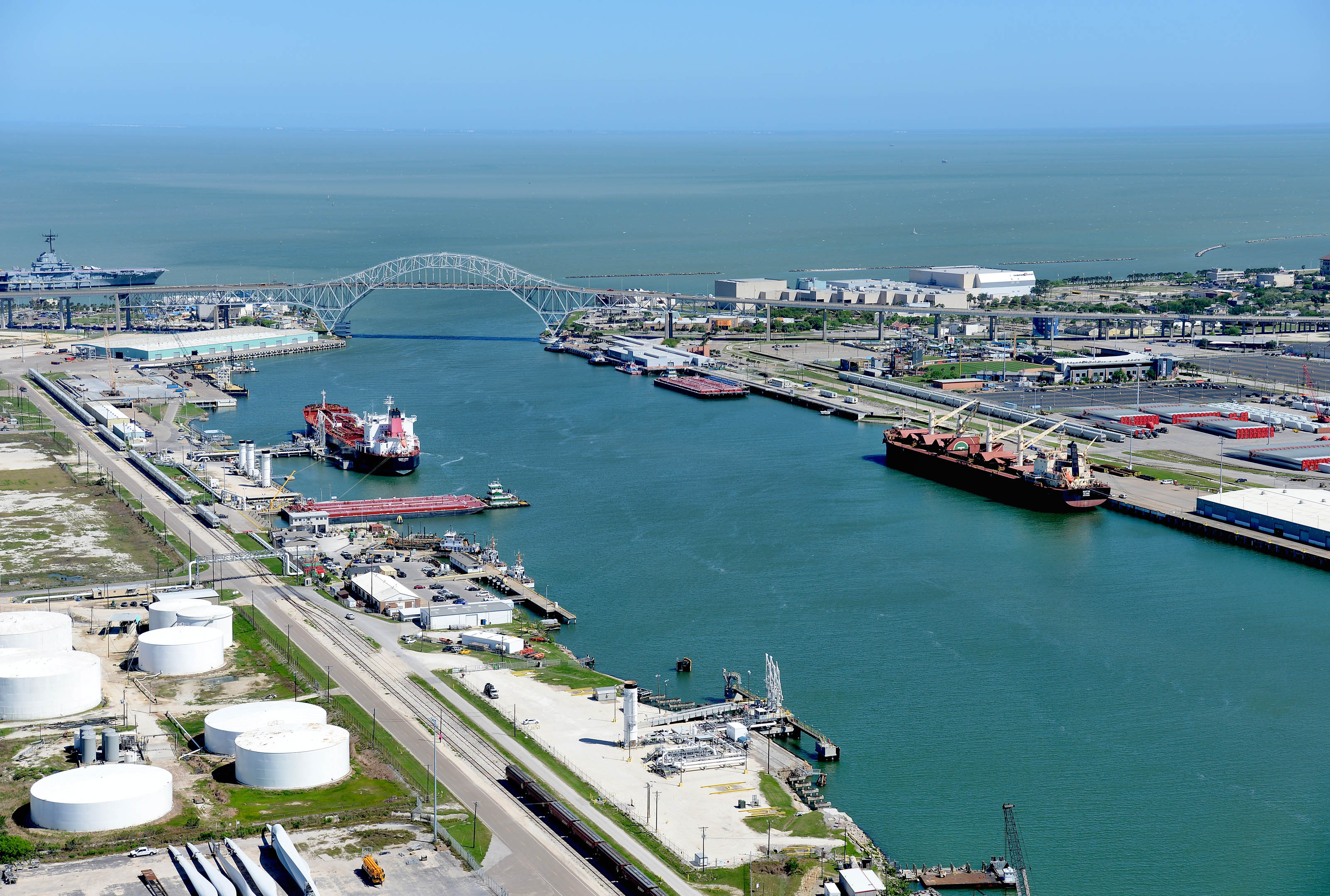
Scientists at The University of Texas at Austin are helping the Port of Corpus Christi determine if it can permanently store greenhouse gas emissions from industrial operations at the port beneath the seafloor of the Gulf of Mexico.
The goal of the project is to divert carbon dioxide (CO2) emissions from industrial operations at the country’s largest energy port and safely store them in geological formations deep beneath the seafloor in nearby state-managed waters. The port is tapping the expertise of some of the world’s leading carbon capture and storage researchers at the Bureau of Economic Geology in the UT Jackson School of Geosciences to help find the best locations and determine the technical and economic feasibility of the project.
Tip Meckel, a senior research scientist at the Bureau of Economic Geology, said significant work has already been done in the area that could benefit the project.
“The Gulf of Mexico Basin is one of the most studied geologic basins in the world, so we know a tremendous amount about it already,” said Meckel, who has been a researcher for over 16 years at the Bureau’s Gulf Coast Carbon Center. “Myself and others at the carbon center have been working on this topic for the Department of Energy for almost 10 years now. We’ve conducted regional studies from, more or less, Corpus Christi to the Louisiana border and put together a very nice storage resource map and high-level capacity estimates.”
The feasibility study, which is funded by a $7.36 million grant from the U.S. Department of Energy, will last two years and include a study of the best methods to transport CO2 from the port to an offshore storage site. The site would be in state waters in property managed by the Texas General Land Office. Funds from the leases support the state’s Permanent School Fund, which helps fund primary public education throughout Texas.
Meckel and his team at the Gulf Coast Carbon Center will be using high-resolution marine seismic imaging technology to characterize potential storage sites and collect baseline data that will be used for long-term monitoring if the project proceeds.
The Port of Corpus Christ is the largest in the nation in terms of total revenue tonnage and is a major exporter of domestically produced energy with more than 200 tenants and customers. As part of a separate project, the port is also looking at the feasibility of storing the emissions under port-owned property onshore. The Gulf Coast Carbon Center is an adviser on that project as well. Each proposed carbon capture and storage project has a goal of storing at least 50 million metric tons of CO2 over a 30-year period, which is about the equivalent of the CO2 emitted by roughly 11 million average gasoline powered vehicles over a year, according to the US. Environmental Protection Agency.
“The Port of Corpus Christi is thrilled to collaborate with The University of Texas at Austin on this milestone project,” said Jeff Pollack, Chief Strategy and Sustainability Officer for the Port of Corpus Christi. “Our partners in academia are instrumental in our ambition to develop a scalable, centralized carbon management solution.”
The project is part of a trend of growing interest in carbon capture and storage projects in the Gulf Coast and other areas that would use underground geological formations to permanently store greenhouse gasses, said Meckel. The Gulf Coast Carbon Center is a recognized global leader on the topic and has worked for more than 20 years on the issues of safely storing CO2 underground and monitoring the sites to ensure the gas does not leak into the atmosphere where it could contribute to climate change.
The goal of CCS is to lower emissions into the atmosphere, regardless of fuel source,” said Bureau Director Scott Tinker, who helped form the GCCC over two decades ago. “Given that we will need fossil fuels for many decades to meet the needs of a healthy society, CCS is an important technology to lower global atmospheric emissions.”


